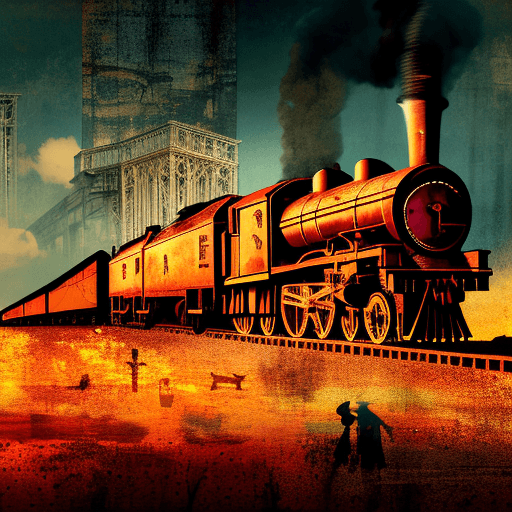One-line summary:
Orphan Train is a captivating historical fiction novel that explores the lives of two women, Vivian Daly and Molly Ayer, as their paths intertwine through the shared experience of the orphan train movement.
The Journey of Vivian Daly
Orphan Train delves into the life of Vivian Daly, an elderly woman who experienced the hardships of the orphan train movement during her childhood. At the age of nine, Vivian is left orphaned and alone in New York City after her family perishes in a tenement fire. She is subsequently placed on an orphan train, which transported thousands of children from the East Coast to the Midwest between 1854 and 1929. Vivian endures a series of foster homes, some filled with love and care, while others are plagued by abuse and neglect. As she grows older, Vivian hides her past and becomes a successful businesswoman, but the scars of her early life continue to haunt her.
Molly Ayer’s Story
The narrative also follows the life of Molly Ayer, a seventeen-year-old Penobscot Indian girl who has bounced around the foster care system. Molly is assigned community service hours as a punishment for stealing a copy of Jane Eyre from the library. Her task is to help Vivian clean out her attic, which is filled with memories from her past. Initially, the two women seem to have little in common, but as they sort through the boxes, they discover unexpected connections and shared experiences. Molly’s own troubled past and Vivian’s stories of resilience and survival bring them closer together, forming a bond that transcends their generational differences.
Themes of Loss, Identity, and Belonging
Orphan Train explores several themes, including the profound impact of loss, the search for identity, and the universal desire for a sense of belonging. Both Vivian and Molly have experienced significant losses in their lives, and their journey together allows them to confront their pasts and find healing. The novel also delves into the complexities of identity, particularly for those who have been uprooted from their cultural heritage. Vivian, as an Irish immigrant, and Molly, as a Native American, grapple with questions of heritage and belonging, highlighting the importance of understanding one’s roots.
Key Takeaways:
- Orphan Train sheds light on a little-known chapter of American history, the orphan train movement, which transported thousands of children across the country.
- The novel emphasizes the power of human connection and the healing that can come from sharing one’s story.
- Loss and trauma can have lasting effects, but through resilience and support, individuals can find strength and healing.
- Identity and a sense of belonging are fundamental human needs that can be shaped by experiences of displacement and cultural assimilation.
“You can’t find peace by avoiding life, Leonard. You have to grab it with both hands and hold on tight.”
– Christina Baker Kline, Orphan Train
Orphan Train is a poignant and captivating novel that explores the lives of two women from different generations, brought together by the shared experience of the orphan train movement. Through vivid storytelling, Christina Baker Kline delves into themes of loss, identity, and the search for belonging. The book sheds light on a little-known chapter of American history while emphasizing the power of human connection and the healing that can come from sharing one’s story. Orphan Train is a compelling read that will leave readers reflecting on the resilience of the human spirit and the importance of understanding our past to shape our future.












